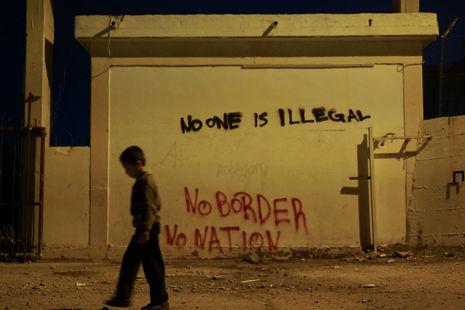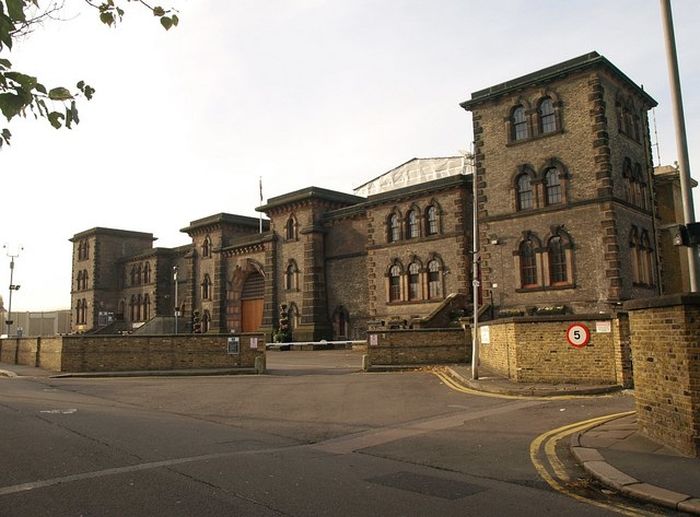We cannot forget the danger that refugees face amidst the COVID-19 pandemic
Maya Beney argues that the plight of refugee camps is being ignored by European governments, and we must push for a humanitarian response

‘The EU will have blood on its hands if it continues to look away’, warns Steven van de Vijver, a Dutch physician who spent two weeks working in Moria, a refugee camp on the Greek island of Lesbos. The Coronavirus crisis deepens, yet people remain stranded in refugee camps or detained in holding facilities across Europe, defenceless due to the impossibility of social distancing, and the lack of hygiene and medical care. European governments must fulfil their humanitarian responsibility of rescuing people from these insalubrious conditions as soon as possible, for, as De Vijver also points out, ’time is on nobody’s side’.
Moria is one of several camps across the Aegean Islands that have a collective population of around 42,000, six times over their capacity. 20,000 men, women and children are currently living in Moria, crammed into an area equivalent to the size of Hyde Park. Although social distancing has been espoused almost universally as a tactic to combat the spread of Coronavirus, we simply cannot expect this to become reality in situations of chronic overcrowding. If COVID-19 spread quickly on the Diamond Princess cruise ship, the consequences in such densely populated camps will be even worse.
“Looking after displaced peoples is a collective humanitarian responsibility...”
Abysmal hygiene conditions and the poor infrastructure mean that camps are poorer equipped to handle outbreaks than elsewhere. Half of the population of the Vathy camp on Samos are living in summer tents or plastic sheeting, surrounded by rubbish and human excrement. In the squats that replaced the dismantled ‘Jungle’ in Calais, aid organisations have reported rat infestations and worsening health conditions among those sleeping outside. In Moria, there is just one tap of water for 1,300 people, one toilet for 167 people, and one shower for 242 people. Politicians across Europe are aware that people in refugee camps are more prone to ongoing health conditions such as scabies, lice, pneumonia, and respiratory problems, which render them especially vulnerable to outbreaks of COVID-19. They must act quickly for the decongestion of camps before their knowledge turns into complicity in what could be a horrendous humanitarian crisis.
As of now, there have been no recorded cases of Coronavirus on the island camps, but 28 have been diagnosed on the Greek mainland. In Calais, the number has jumped from two to nine in three days, echoing the Care4Calais founder Clare Moseley’s warning that, ‘based on the rates of transmission seen elsewhere, in four weeks, there could be more than 300 cases.’ But currently, there would not be enough medical care for those afflicted: there are only six Intensive Care beds in Lesbos.
The restrictions on movement imposed by European lockdowns have – almost paradoxically – reduced the amount of humanitarian and medical aid reaching refugees at a time when it is most desperately needed. In Calais, there has been a drop in volunteer numbers, resulting in food and water shortages. Restrictions on border crossings have made it difficult for supplies and volunteers to reach camps.
“...now, more than ever, we need to be aware of the deteriorating situation in refugee camps.”
Camps are a problem, not the solution, when dealing with the Coronavirus pandemic, and the refugee crisis more broadly. But the response of European governments thus far remains feeble and ineffective. Authorities in Calais have started to relocate asylum-seekers into temporary accommodation, a plan projected to take two weeks – but this is far too long, considering that France has already been in lockdown for the past three weeks. Greece, too, is transferring camp residents to centres, but new asylum requests have been halted, and applications are being made difficult elsewhere, such as in Italy.
Manos Logothetis, General Secretary of the Greek migration ministry, has called for other states to help resettle the migrants on the Aegean Islands, stating that if each European state agreed to take in 2,000 people, the problem would be quickly resolved. While some countries – such as Germany and Luxembourg – have already begun welcoming young asylum-seekers, the UK’s Home Secretary, Priti Patel, has refused to accept more unaccompanied children under the pretext of adhering to the 2016 EU-Turkey deal. This is shameful, to say the least. Looking after displaced peoples is a collective humanitarian responsibility; it is time for European governments to swallow their nationalistic pride and concede that rescuing refugees living in such inhumane conditions is more important than adhering to an outdated migration agenda.
In the space of just a few weeks, the way of life in the UK and other European countries has been profoundly shifted. Lockdowns have curbed our freedom of movement and the way we interact with our family and friends, and our foreseeable future has been rendered murky and uncertain. But now, more than ever, we need to be aware of the deteriorating situation in refugee camps.
Lockdown is not easy – it brings its own plethora of problems with it. The majority of us, though, are fortunate enough to at least have the basic ability to social distance, as well as access to the human necessities of shelter and medical care. We must call on our governments to extend their compassion to refugees when they need it most.
Sign the petition here: https://www.change.org/p/european-governments-leavenoonebehind-prevent-the-corona-catastrophe-now-also-at-the-external-borders
Donate to the IRC: https://www.rescue-uk.org/
 News / Judge Business School advisor resigns over Epstein and Andrew links18 February 2026
News / Judge Business School advisor resigns over Epstein and Andrew links18 February 2026 News / Gov grants £36m to Cambridge supercomputer17 February 2026
News / Gov grants £36m to Cambridge supercomputer17 February 2026 News / CUCA members attend Reform rally in London20 February 2026
News / CUCA members attend Reform rally in London20 February 2026 News / Union speakers condemn ‘hateful’ Katie Hopkins speech14 February 2026
News / Union speakers condemn ‘hateful’ Katie Hopkins speech14 February 2026 News / Hundreds of Cambridge academics demand vote on fate of vet course20 February 2026
News / Hundreds of Cambridge academics demand vote on fate of vet course20 February 2026










